Events
Filters
12 November 2024
Immanuel M. Bomze (University of Vienna) – Need to relax – but perhaps later? Reflections on modeling sparsity and mixed-binary nonconvex optimization problems
Seminar/Lecture
3.30 pm – 4.30 pm
Data Analytics Lab (Building 1, Level 6, Room 1.610) 8 Somapah Road
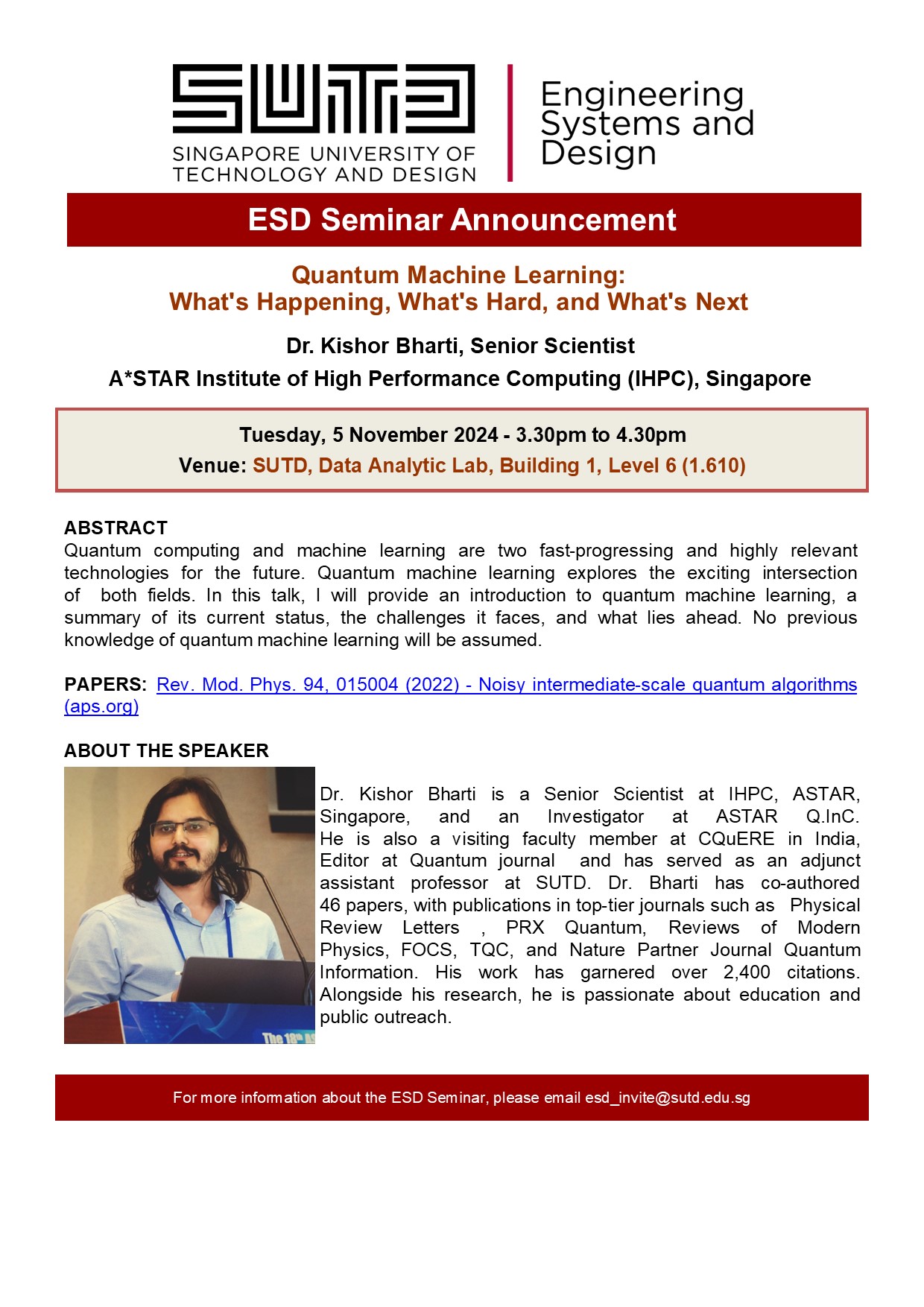
05 November 2024
Dr. Kishor Bharti (IHPC) – Quantum Machine Learning: What’s Happening, What’s Hard, and What’s Next

Seminar/Lecture
3.30 pm – 4.30 pm
Data Analytics Lab (Building 1, Level 6, Room 1.610) 8 Somapah Road
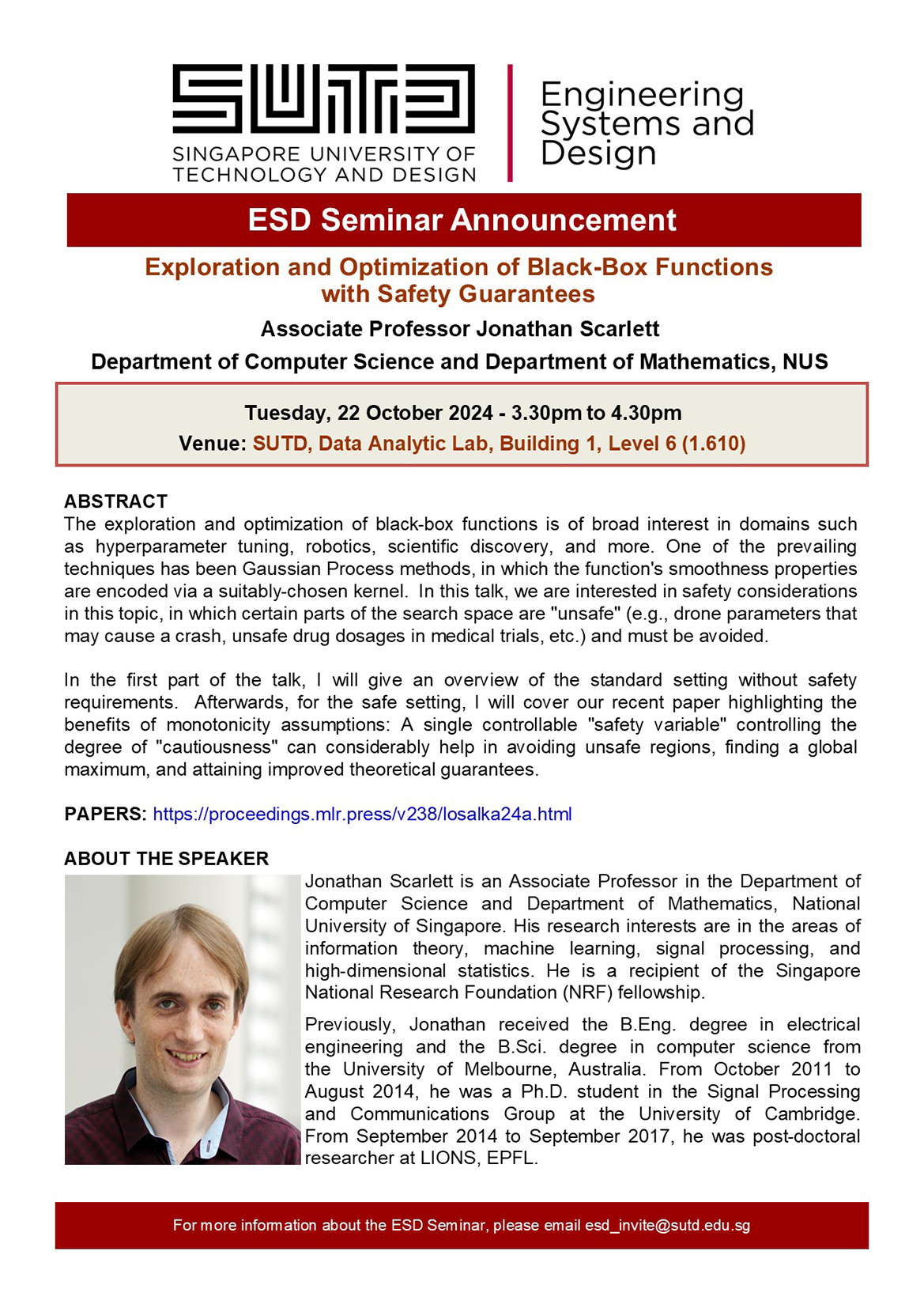
22 October 2024
Jonathan Scarlett (National University of Singapore) – Exploration and Optimization of Black-Box Functions with Safety Guarantees
Jonathan Scarlett (National University of Singapore) – Exploration and Optimization of Black-Box Functions with Safety Guarantees

Seminar/Lecture
3.30 pm – 4.30 pm
Data Analytics Lab (Building 1, Level 6, Room 1.610) 8 Somapah Road
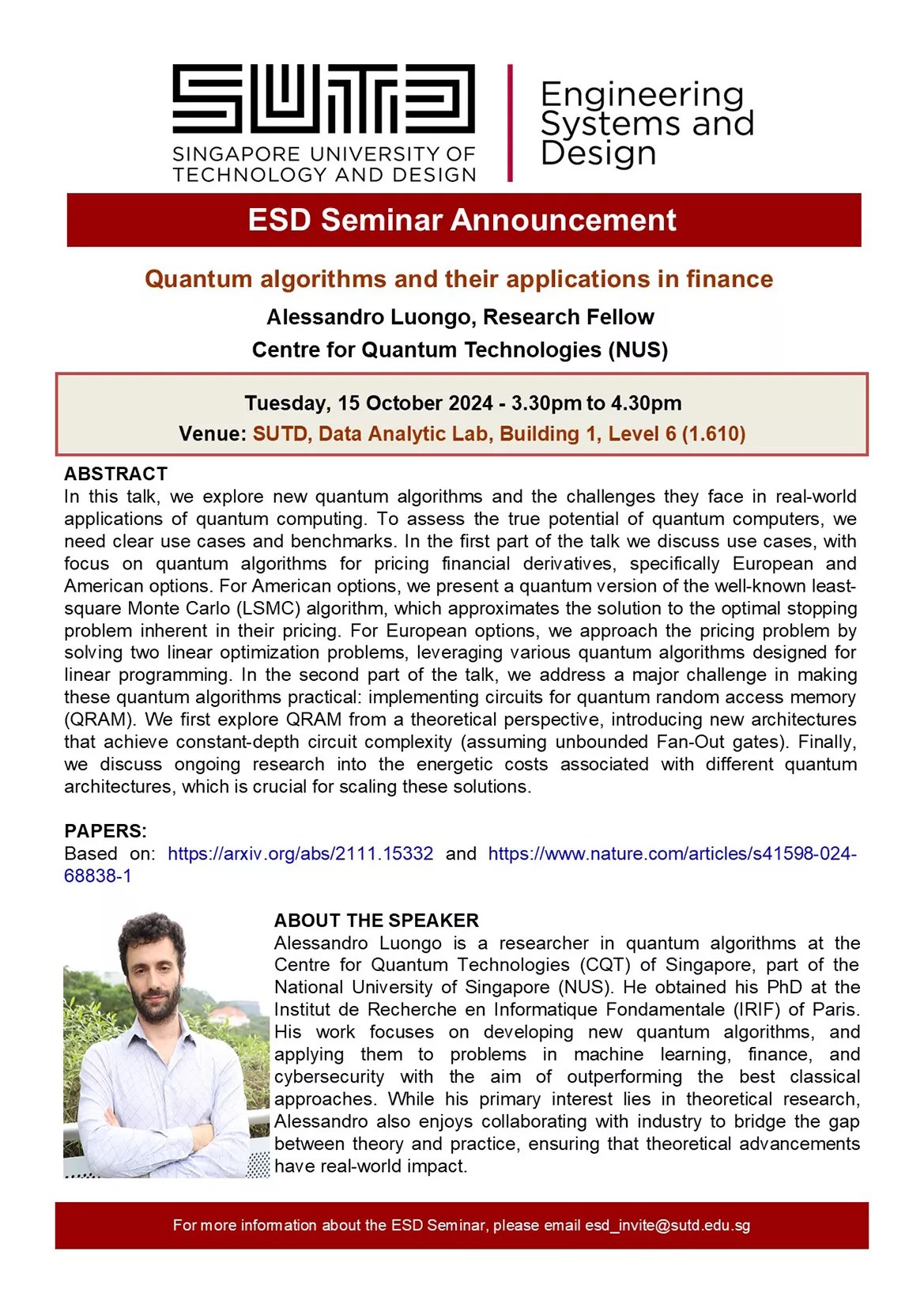
15 October 2024
Alessandro Luongo (National University of Singapore) – Quantum Algorithms and Their Applications in Finance

Seminar/Lecture
3.30 pm – 4.30 pm
Data Analytics Lab (Building 1, Level 6, Room 1.610) 8 Somapah Road
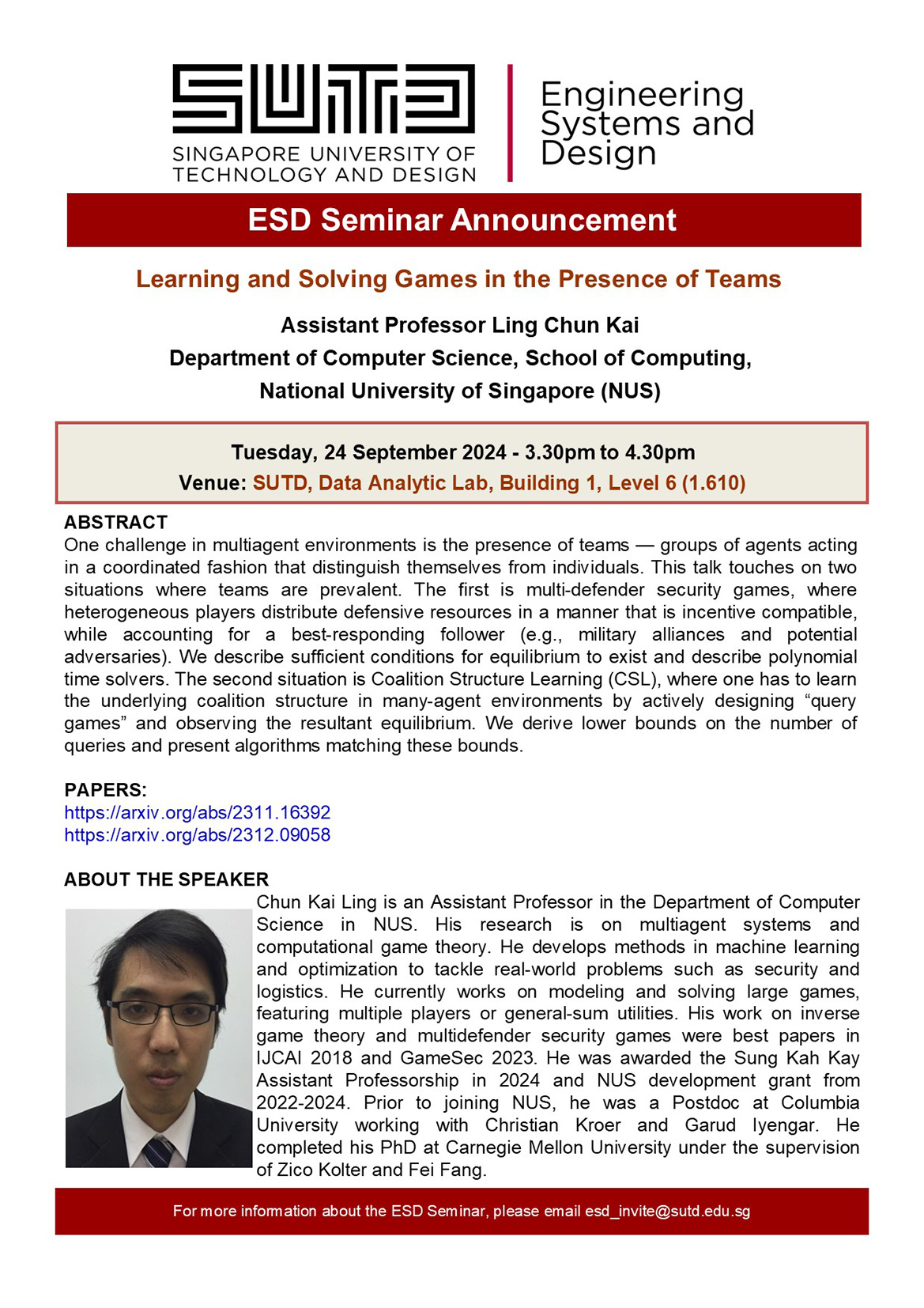
24 September 2024
Ling Chun Kai (National University of Singapore) – Learning and Solving Games in the Presence of Teams

Seminar/Lecture
3.30 pm – 4.30 pm
Data Analytics Lab (Building 1, Level 6, Room 1.610) 8 Somapah Road
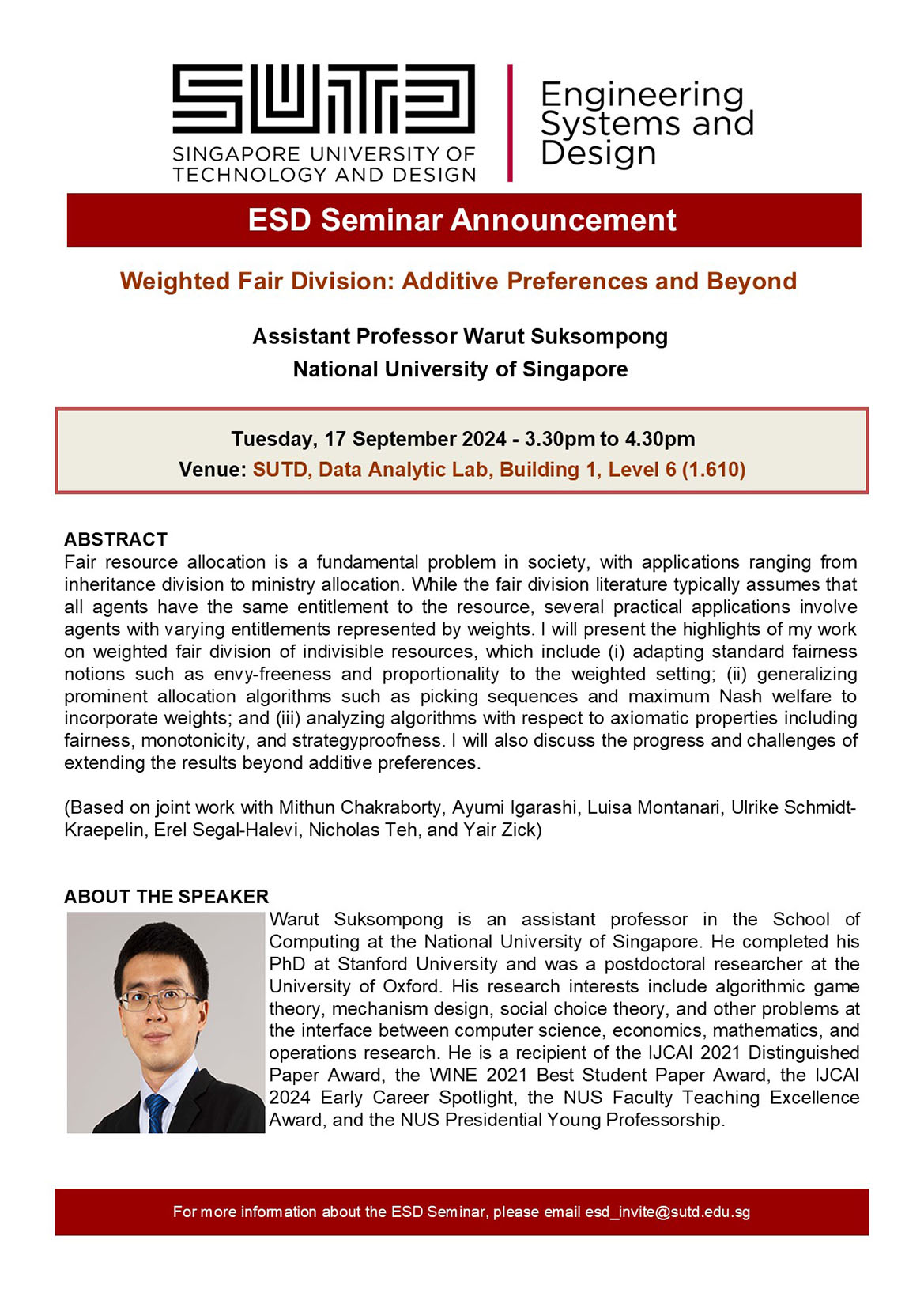
17 September 2024
Warut Suksompong (National University of Singapore) – Weighted Fair Division: Additive Preferences and Beyond

Seminar/Lecture
3.30 pm – 4.30 pm
Data Analytics Lab (Building 1, Level 6, Room 1.610) 8 Somapah Road

30 August 2024
It's all in the mix: Wasserstein machine learning with mixed features
It’s all in the mix: Wasserstein machine learning with mixed features

Seminar/Lecture
10.00 am – 11.00 am
SUTD Think Tank 21 (Building 2, Level 3) 8 Somapah Road
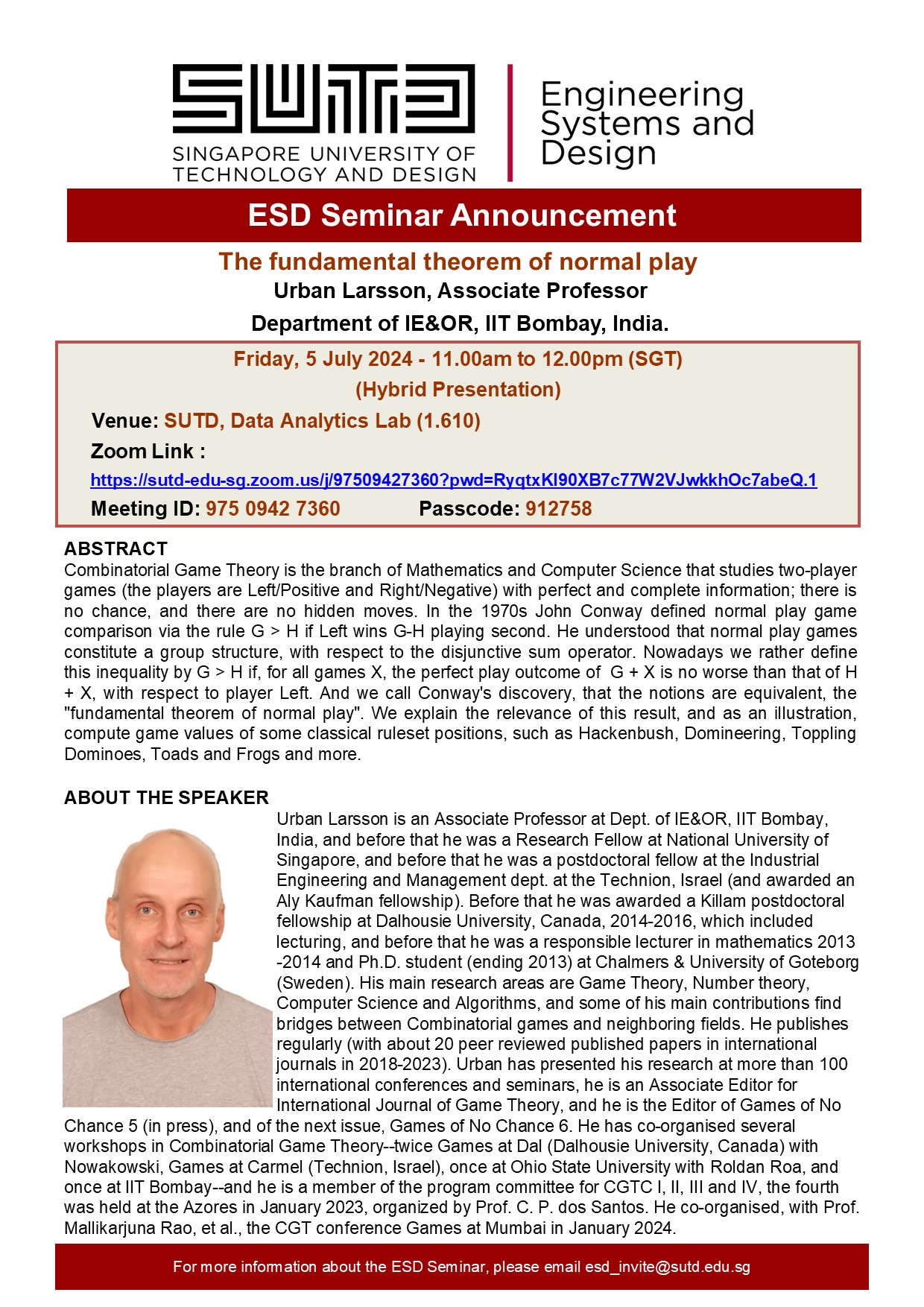
05 July 2024
Urban Larsson (IIT Bombay, India) – The Fundamental Theorem of Normal Play
Urban Larsson (IIT Bombay, India) – The Fundamental Theorem of Normal Play

Seminar/Lecture
11.00 am – 12.00 pm
Data Analytics Lab (Building 1, Level 6, Room 1.610) 8 Somapah Road
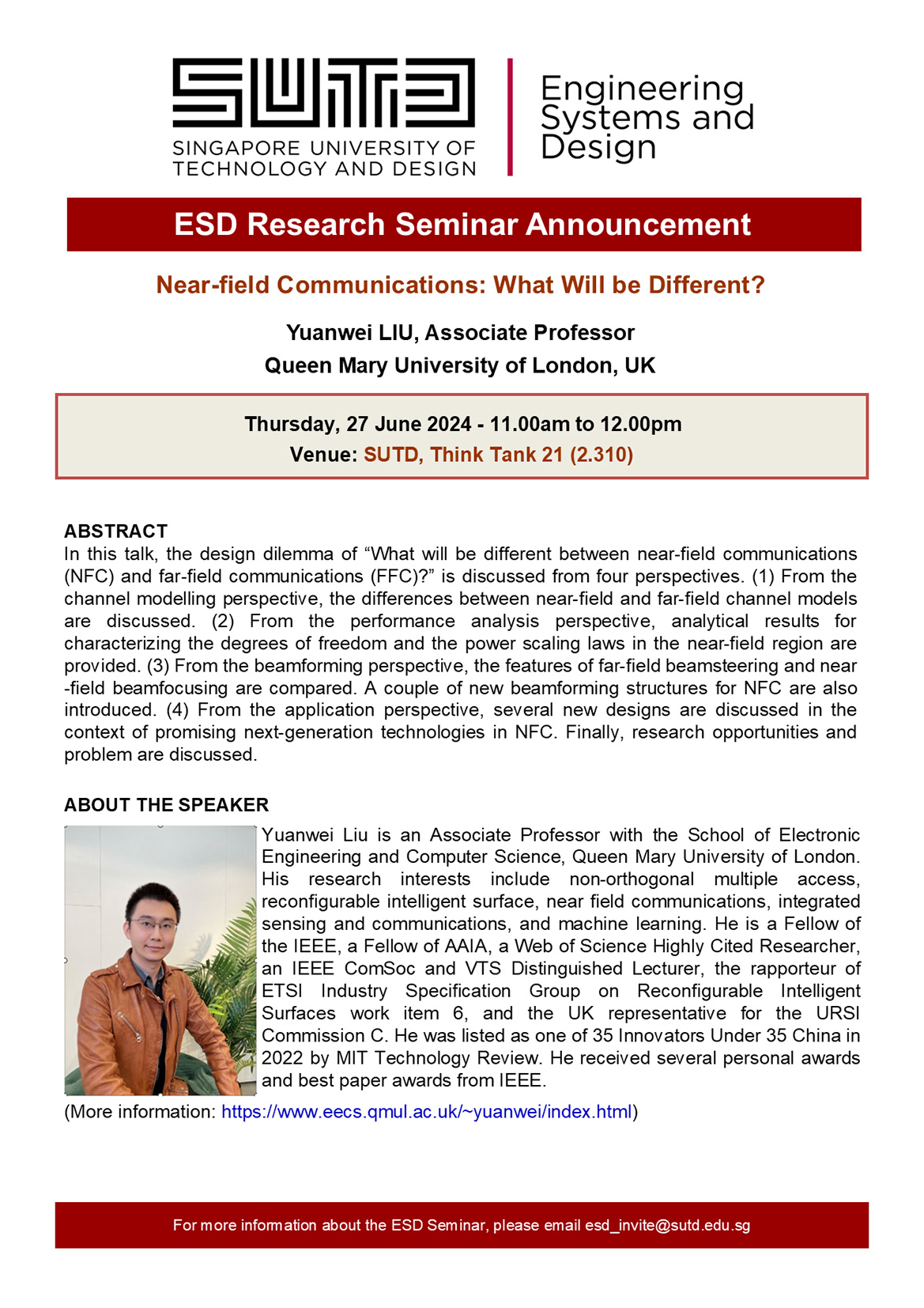
27 June 2024
Yuanwei Liu (Queen Mary University of London) – Near-field Communications: What Will be Different?
Yuanwei Liu (Queen Mary University of London) – Near-field Communications: What Will be Different?

Seminar/Lecture
11.00 am – 12.00 pm
SUTD Think Tank 21 (Building 2, Level 3) 8 Somapah Road
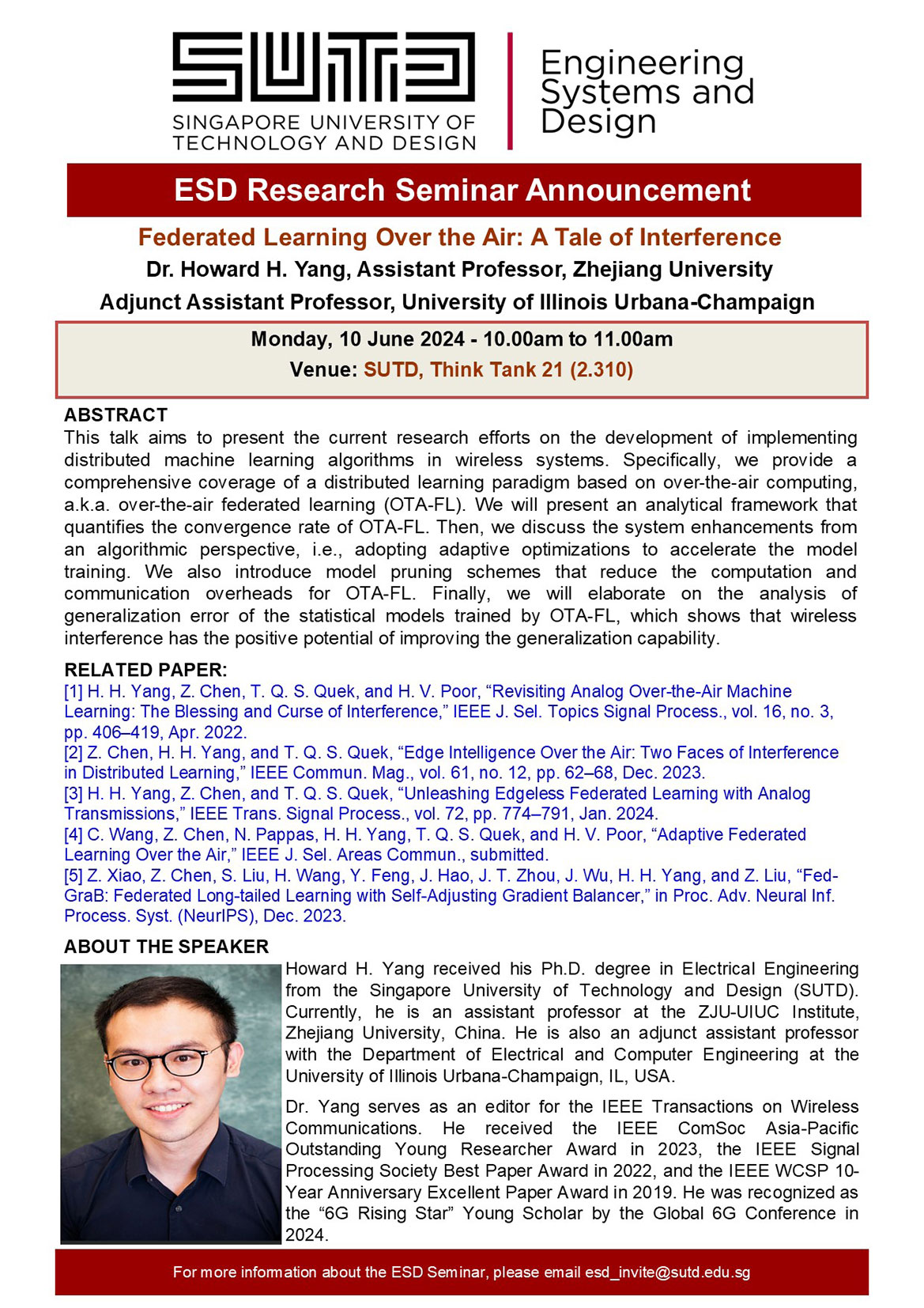
10 June 2024
Howard H. Yang (Zhejiang University) – Federated Learning Over the Air: A Tale of Interference
Howard H. Yang (Zhejiang University) – Federated Learning Over the Air: A Tale of Interference

Seminar/Lecture
10.00 am – 11.00 am
SUTD Think Tank 21 (Building 2, Level 3) 8 Somapah Road
